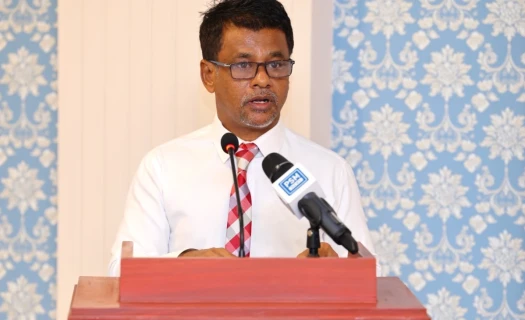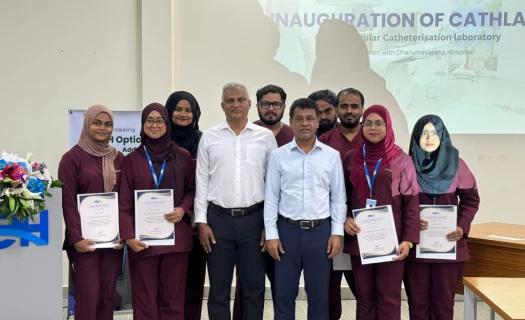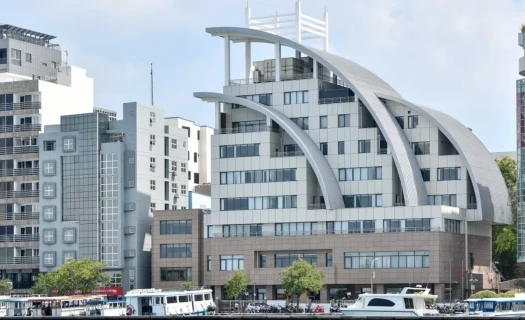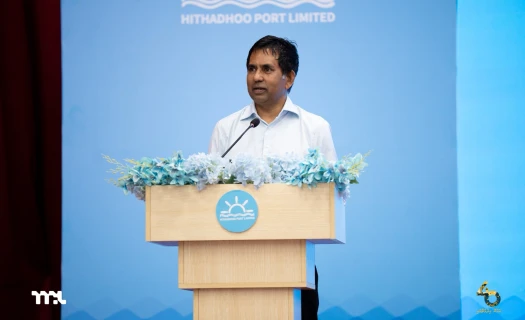Sun, 08 Feb 2026
|DHIVEHI
UNDP's resilient recovery efforts post-tsunami to build a stronger future
26 Dec 2024
|

Photo: United Nations
The 2004 Indian Ocean tsunami left the Maldives reeling in the face of a disaster like never before.
Devastation surrounded nearly every inhabited island, leaving 15,000 people displaced and damages amounting to 62 per cent of the Nation’s GDP. In the wake of overwhelming loss, the United Nations Development Programme (UNDP) spearheaded recovery efforts across the Maldives that would not only rebuild what was lost, but lay the groundwork for a more resilient future.
A key initiative in recovery was reconstruction of housing. With over 8,800 homes affected, the UNDP focused on 45 islands, successfully reconstructing over 1,300 homes and repairing more than 3,600, to provide shelter and stability to thousands amongst the affected.
UNDP’s efforts didn’t garner on just restructuring, but innovating. They involved local communities in the process, giving them ownership and responsibility for the recovery. New features like rainwater harvesting systems and upgraded sanitation facilities were integrated into the homes, improving living conditions while fostering greater resilience. Furthermore, the UNDP developed a National Housing Policy Framework, guiding future housing development to ensure it was robust and disaster-resistant.
The tsunami’s impact, however, was felt far beyond the physical damage—it crippled the nation’s economy, particularly the vital industries of tourism, fishing, and agriculture. The UNDP stepped in with a comprehensive recovery strategy aimed at revitalising these sectors. Fishing gear and agricultural supplies were distributed to affected communities, and farmer field schools were established to enhance knowledge and skills. Fish-processing centres were built, and microcredit schemes were introduced to empower local businesses, with women making up 33 per cent of the recipients. These efforts helped over 1,000 individuals rebuild their livelihoods, creating a more sustainable and diverse economy.
Transport and trade also suffered heavily, as more than 100 harbours and jetties were destroyed. The UNDP launched technical surveys across 21 islands and rebuilt six harbours, incorporating improved designs to ensure durability against future disasters. These rehabilitated harbours were vital in restoring the transportation of goods and services, helping to re-establish economic and social connections across the islands.
Recognising the Maldives’ vulnerability to future natural disasters, the UNDP worked to enhance the country’s disaster preparedness. A Geographic Information System (GIS)-based disaster-risk profile was introduced, enabling the country to better understand and mitigate risks. Early warning systems were procured, and disaster simulation exercises were held to ensure that communities were prepared for future events.
The UNDP also played a key role in the development of a new national disaster management policy, which is currently under review by parliament, aiming to bolster the country’s preparedness for future calamities.
Managing the massive influx of international aid—totaling nearly USD 500 million—was another critical task. The UNDP facilitated the creation of the Development Assistance Database (DAD), a system that tracks and monitors aid utilisation. This ensured transparency and efficiency in the distribution of resources, promoting collaboration between the government, donors, and recovery agencies.
Despite significant progress, challenges remain. Over 10,000 people are still displaced, and there are ongoing funding gaps in areas such as housing, harbours, and water sanitation. Logistical difficulties continue to hinder the pace of reconstruction. However, the UNDP’s initiatives have laid a strong foundation for long-term recovery, promoting sustainable development and resilience across the Maldives.
Through its efforts, the UNDP has shown the world how recovery can be achieved not just by rebuilding, but by building better. By integrating community participation, sustainable practices, and effective management, the UNDP’s initiatives have helped the Maldives not only recover from disaster but emerge stronger and more prepared for the challenges of the future.








